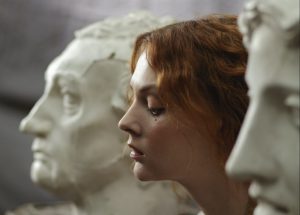
“If, as the Gnostics claimed, God could not be sullied by coming into contact with creation because he was ‘pure spirit,’ then, from the outset, the incarnation would not have been possible,” writes Dr. Timothy Tennent. Photo: Pexels.com.
By Thomas Lambrecht-
Our church and our culture are divided. Same-sex marriage, gender identity, pornography, abortion, cohabitation, divorce. These and other “culture war” issues pose a challenge to Christians about how to understand and articulate biblical Christian values in a post-Christian society.
The problem is that we are in reactive mode, responding to each of these separate issues individually by saying “no.” Non-Christians constantly hear the “no,” without every hearing the “yes” that underlies it.
In addition, we fail to see how all of these individual issues relate to each other. We therefore end up teaching and preaching a set of value judgments based on Scripture, rather than a coherent theology that sets forth a positive Christian vision for how to live a godly life.
That is the thesis of a new book by Dr. Timothy C. Tennent, president of Asbury Theological Seminary. For the Body: Recovering a Theology of Gender, Sexuality, and the Human Body is an ambitious effort to construct the framework for a comprehensive Christian understanding of the body that can guide our ethical reflection on many controversial and difficult questions.
“The church has failed to understand that these seemingly disparate issues are actually manifestations of a single root problem – namely, our failure to articulate a Christian view of the body,” Tennent writes. “These issues are like fires that keep breaking out in different parts of the culture, and members of the church are like firefighters desperately careening from one spot to another, trying to put out this fire or that fire. But our focus on extinguishing individual fires has prevented us from examining the underlying cause of those fires. The church has been missing the larger foundational issue because we have been framing the issue in smaller ways. The result is that the society perceives the church to be merely against a range of behaviors or actions, but they have no compelling vision of what we are for” (emphasis original).
Drawing on Scripture, the seminal work of Pope John Paul II (Man and Woman He Created Them: A Theology of the Body), the writings of early church fathers, and the current work of evangelical scholars, Tennent compiles a coherent and comprehensive understanding of how Christians ought to make sense of our embodied existence.
Tennent identifies two heresies when it comes to our relationship with our bodies. One is the neo-gnostic view that separates the soul from the body. It privileges the “heart,” feelings, and the spiritual aspect of human existence, while viewing the body as either evil or of no consequence. This “mind over matter” approach says that what I feel about myself is more determinative of my identity than the reality of the body God gave me. The body then becomes a tool I can use to actualize my existence and express who I really am. Thus, gender identity becomes separated from biological sex, and the body can be altered and shaped in whatever way I desire for my own fulfillment.
The other heresy reduces the body to a set of biological categories with no moral significance. I can do whatever I want with my body because it is just a material substance that has no lasting value.
Foundational to Tennent’s understanding is the reminder that God created us as embodied human beings. Created in God’s image, we point to the Trinity as a union of body, soul, and spirit. We recapitulate the incarnation of Christ in the union of the physical and the material in one person.
 Created Purpose of the Body. Humanity was created for a purpose – to represent God on earth. Fulfilling that purpose, we are given the roles of fruitfulness and stewardship of the earth, including our own bodies (Genesis 1:28, 2:15). We are called “to extend [God’s] dominion over the created world … to steward it according to God’s gracious rule,” Tennent writes. God’s image reflects “a special relational capacity” that is demonstrated in our ability to make covenant relationships with one another, particularly the covenant of marriage. “We understand that we have the capacity to recognize moral categories because we are endowed with the image of God and the empowering presence of the Holy Spirit,” he states.
Created Purpose of the Body. Humanity was created for a purpose – to represent God on earth. Fulfilling that purpose, we are given the roles of fruitfulness and stewardship of the earth, including our own bodies (Genesis 1:28, 2:15). We are called “to extend [God’s] dominion over the created world … to steward it according to God’s gracious rule,” Tennent writes. God’s image reflects “a special relational capacity” that is demonstrated in our ability to make covenant relationships with one another, particularly the covenant of marriage. “We understand that we have the capacity to recognize moral categories because we are endowed with the image of God and the empowering presence of the Holy Spirit,” he states.
Our bodies are not to be idols, either because we exalt the beauty of the body above the beauty of the spirit, or because we replace God’s vision for our bodies with one of our own making. Instead, we are to be image-bearers for God, reflecting his image in the world through dominion/stewardship, relationship, and morally right living.
Creation establishes the moral boundaries within which we are to live. The Fall came about because Adam and Eve resisted God’s created boundaries and wanted to determine their own by eating from the tree of the knowledge of good and evil. God’s image extends to the very physicality of our bodies, in that he created us male and female. Separately, we do not reflect the complete image of God, but together, male and female recapitulate his image in our complementary relationships (Genesis 1:27). The denial of our created gender is a denial of the image of God and of the moral boundaries built into the creation itself.
Icon of Christ. The physical body is an icon, or representation, of Christ’s incarnation. “If, as the Gnostics claimed, God could not be sullied by coming into contact with creation because he was ‘pure spirit,’ then, from the outset, the incarnation would not have been possible,” Tennent writes. “If our bodies are untrustworthy and only serve to mask the true self that is within, then the incarnation of the second person of the Trinity as Jesus of Nazareth cannot be trusted as a reliable means for God’s most profound self-disclosure in history.”
The very physicality of the body is the means by which God wrought redemption through the body of Christ, crucified on the cross and raised from the tomb. Further, our bodies are the channels through which God’s grace comes to us. “We read Scripture with our eyes, we speak it with our mouths, and we hear it with our ears. We take the Lord’s Supper … into our bodies, we pray in and through our minds and bodies,” he observes. “We obey God’s Word and serve others (works of piety) through our bodies. The physical body is the means through which God conveys his grace into our lives, the channel through which God works his purposes in us” (emphasis original).
We are created as embodied spirits in the image of God. But that image has been marred by the Fall. We experience brokenness and disordered desires because of sin. “We should not equate the phrase ‘I was born this way’ with the phrase ‘God made me this way,’” Tennent states. The way we are is not completely the way God intended us to be. Hence, the need for redemption and a “new creation” in Jesus Christ.
Marriage. “Marriage between a man and a woman is an embodied icon pointing to the greater mystery of Christ and his church,” he writes. Marriage is designed to be a covenant that demonstrates the eternal relationship between Christ and his Church. Therefore, marriage is not to be a commodity that has value only as long as the spouse or the marriage are meeting one’s own needs.
Marriage is unitive, uniting two sexually differentiated persons into one, “representing Christ’s unity with his church, the bride of Christ,” Tennent states. “Adultery, fornication, and gay marriage all erode one of the key markers of marriage: the exclusive, unitive sign of our union with Christ as the people of God.”
Marriage is also normally procreative, as demonstrated by the design of the male and female bodies: “When sex is separated from these spiritual realities, fragmentation and brokenness occur.”
Marriage is binary, uniting one man and one woman, “two separate glories – two ‘others’ – coming together in a covenantal relationship,” Tennent writes. Marriage is self-giving, modeling Christ’s sacrificial love. In all these ways, marriage, the uniting of two persons, two bodies, is diminished when the spiritual realities behind it are ignored.
Further, sex outside of marriage “violates the biblical logic of marriage as covenant, since the one-flesh exclusive relationship is meant to be an icon of the faithfulness of God who is always faithful to his covenant with us,” he observes. Marriage is the antidote to consumer relationships, which are valuable only as long as they meet my needs. “If the bond of marriage does not hold up during times of testing and is easily broken,” he believes, “it unintentionally conveys the unreliability of God’s bond with us.”
Singleness. Tennent maintains “singleness and the married life are two intricately related mysteries that anticipate the same future reality,” namely, intimate fellowship with God. Celibate singleness “point[s] back to the dawn of creation, before rebellion and sin entered the world. It serve[s] as a remembrance of our purified state before God in creation prior to the fall,” he writes.
Since marriage is only for this life (Mark 12:25), it “is not an ultimate end, or an end in itself. Rather, it is a temporary reality, one limited to this age, this season of life. A call to singleness and celibacy is a temporal anticipation of a future resurrected life.” By devoting oneself more single-mindedly to matters of the Kingdom of God, the single person can experience more directly the intimate fellowship with God that all will experience in the future age.
Singleness is both a gift and a calling from God. It allows persons “to live in the present age in such a way that they are already embodying the eschatological reality of the marriage supper of the Lamb,” Tennent believes (emphasis original). It has a powerful effect on society. “There is no greater witness against the overly sexualized world of later modernity and postmodernity than a person who embodies the celibate life in anticipation of the age to come,” he writes.
Singleness can also provide an antidote to a too-narrow focus on family and kinship ties. Same-sex friendship is a key component of the single life. Proper sexual boundaries allow “for the healthy growth and flourishing of other kinds of social relationships, and these relationships are diminished when sexual activity is inserted into every intimate social relationship,” Tennent writes. The church is ideally positioned to be the arena for such friendships for singles and married persons alike.
The Body as Sacrament. Tennent points out that our bodies can be “sacraments” for the world. “Our physical bodies are beacons or signs to the world as we embody God’s saving purposes and his holy love,” he writes. “Our bodies are ‘mobile temples’ that sacramentally represent God in the world.”
Baptism “is an act done with our physical bodies, and we are also baptized into a new ‘body,’ namely, the church” (emphasis original). In communion, “the physical elements of bread and wine are tangible reminders of the physical reality of the incarnation and Jesus’s real sacrifice of his body for the sins of the world,” as well as “a reminder of the physical reality of the bodily resurrection,” he observes.
“We walk into the world every day as the church, the embodied presence of the in-breaking new creation,” Tennent writes (emphasis original). “We are to be the corporate embodiment of all the future realities of the kingdom, including holiness, reconciliation, and hope, all of which the world is desperate for.”
This embodiment of the Gospel, God’s in-breaking Kingdom, is seen also in the countless ways that we give ourselves in love and service to others with our bodies. “So-called ‘menial’ tasks can be daily gifts we give to one another to reflect the self-giving love of God.” He believes our vision of life is transformed by a proper theology of the body, “embracing the sacredness and sanctity of all our embodied existence and seeing the eternal significance of each day.”

Dr. Timothy Tennent
Societal Brokenness. Tennent interacts with the ways our society has misunderstood and warped our comprehension of our bodies. The objectification of the body, the idea that what we do with our own bodies is no one else’s business and has no moral implications, the use of bodily images to incite sexual or material lust, and pornography are all examples of this warped understanding. Such an understanding leads to the destructive forces of self-hatred and shame that are so rampant in our society today.
He pinpoints the ultimate issue at stake in the current cultural debates. “This discussion is really a struggle over our understanding of the human body, not merely about the definition of marriage or who can have sex with whom … The church must affirm the twin truths that all persons are sacred and created in the image of God and yet that all are subject to the moral boundaries that God has established for human flourishing,” he testifies.
The way to combat the secularization of the church’s understanding of the body, Tennent suggests, is through effective discipleship and catechesis – the intentional and systematic teaching of the church’s doctrine and a proper theology of the body. Such catechesis sees “God alone [as] the only ground of objective moral values and truth,” and that “revealed basis for morality” is found in God’s word. “A theistic worldview provides the only firm foundation for human flourishing and moral argument,” he writes. To this end, Tennent provides a couple chapters of practical suggestions on implementing such a discipleship program.
Timothy Tennent has given us an outstanding framework for a proper theology of the body. Others can build on and add to this framework. It gives us a holistic way to address the brokenness in our culture by setting forth a positive vision of what the human body is for and what kinds of uses of the body glorify God. We are, after all, people in bodies – bodies that will be raised and glorified at the resurrection. These “glorious, image-bearing” bodies point to the spiritual and moral underpinnings of the created universe. We should understand and live accordingly.
Thomas Lambrecht is a United Methodist clergyperson and the vice president of Good News.






0 Comments